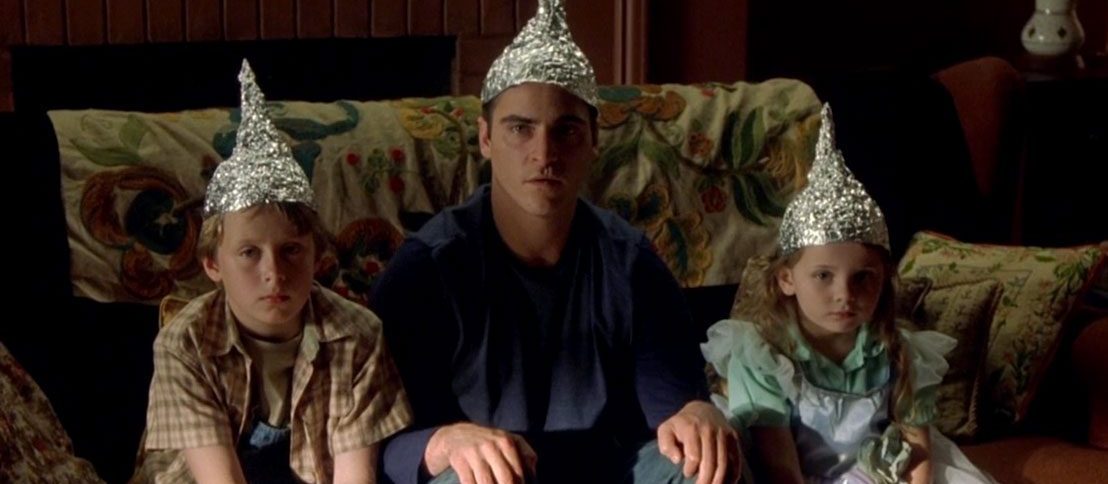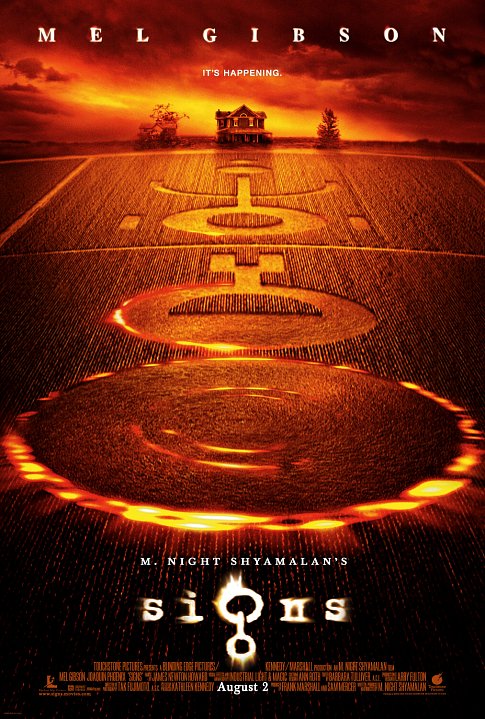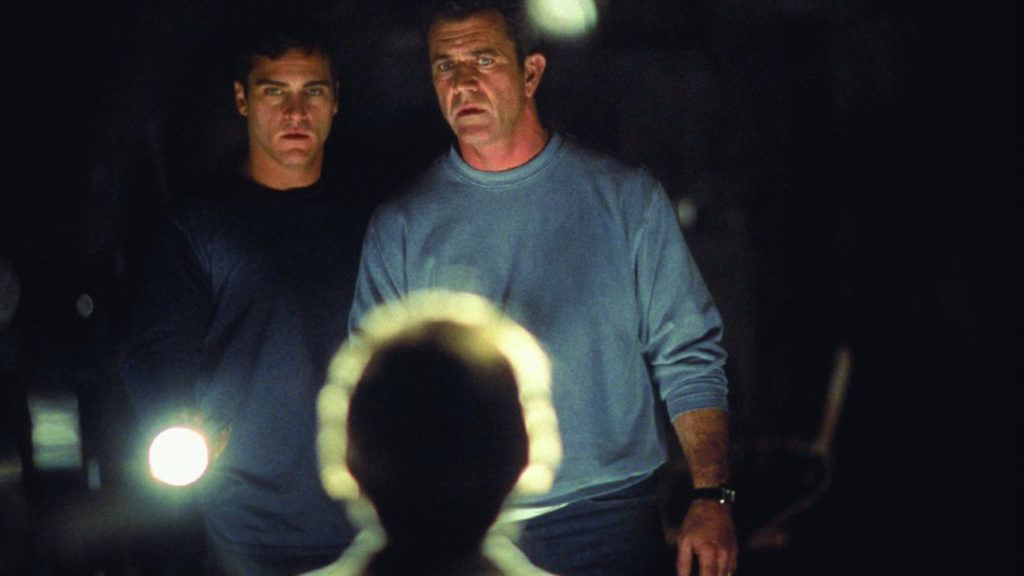

“Are you in my dream too?”
When M. Night Shyamalan is in his element, creatively depicting action sequences, wringing shivering tension out of corn stalks and baby monitors, and coaxing impossibly good performances out of child actors, it is hard to deny his prowess. When wearing the writer’s hat, though, he’s prone to contrivance and often paints himself into weird corners. But his ability to pull suspense out of thin air with bold direction, editing, and sound mix easily overshadows his shortcomings as a writer and so Signs is a lot of fun to watch. Like he did with The Sixth Sense and Unbreakable, Shyamalan takes a B movie trope and overlays it with enough sophistication and emotional depth to get us invested beyond the level of a chintzy pulp novelty. Moving on from ghost stories and comic book heroes of those earlier movies, with Signs he turns his focus to extraterrestrial beings. But as the title suggests, he is loath to make the humanoid aliens the centerpiece. Rather, evidence and implications stand-in for the creatures for the bulk of the runtime, teasing us and building up tension and serving as a platform for ruminating on some deeper themes.
Mel Gibson plays Graham Hess, a priest-turned-farmer who lives in rural Pennsylvania with his two children, Morgan (Rory Culkin) and Bo (Abigail Breslin). His younger brother Merrill (Joaquin Phoenix), a minor league burnout, has been living above the garage and helping out in the wake of the death of Graham’s wife—a traumatic experience that caused Graham to abandon his ministry and for which Morgan blames his father. The trippiness begins without much preamble as a series of large, impeccably shaped crop circles appear in Graham’s field. Then the dog starts acting funny and attacks Bo, forcing Morgan to stab it in the neck with a grill fork to save his sister. Later, in the dead of night, a darkened figure appears on the roof of the Hess home and escapes into the cornfield before Graham and Merrill can catch it. Graham suspects some local pranksters but when questioned by officer Paski (Cherry Jones) Merrill admits that the elusive figure must possess otherworldly athleticism.

Excluding the possibility that a female Scandinavian Olympian was running around outside our house last night, what else might be a possibility?
But like I said, there’s little emphasis on the aliens themselves. Yes, they eventually arrive in their flying saucers and hover above the markers left during their initial reconnaissance. Yes, Graham meets and chops the fingers off of one that is trapped in the home of Ray Reddy (Shyamalan himself), the man who fell asleep at the wheel and killed Graham’s wife. Yes, Merrill finds himself glued to the television, reacting along with the news anchors as new information develops. There’s enough to chew on that you won’t feel let down by their scant screen time, but consider that most of what we come to know about them is read from the pages of a conspiracy theory book that Graham and Merrill basically come to accept at face value.
Like a lot of good sci-fi it reaches beyond its surface style, using the alien invasion as grounds for the exploration of topics we usually prefer not to think about—namely, the concept of synchronicity, the limits of faith, the process of mourning, divine providence, fear and expectation, perseverance, that sort of thing. The nucleus is Graham’s crisis of faith that sees him denying the existence of God, requesting his former parishioners cease calling him “Father,” removing a crucifix from his wall, and refusing to pray. Shyamalan undergirds his narrative with ample symbolism including an imitation of the Last Supper and a few clues that have been interpreted to indicate that the aliens are not aliens at all, but physical manifestations of demons. It takes great skill to craft a film that is so faith-centric without coming off as preachy, but Shyamalan manages it.

By keeping the focus zoomed in on the Hess family despite the global conflict, Shyamalan gains access to our emotions, pulling us across the spectrum with the characters as they experience skepticism, anxiety, amazement, fear, terror, and catharsis. These encounters with mystery are elevated by solid performances from all four stars. Even when the dialogue occasionally trips over itself when reaching toward grandiosity Gibson and Phoenix are more than capable of keeping it on the rails, and Shyamalan’s hit-or-miss comedic interludes are mostly very good here and function perfectly as brief tone shifts. Gibson and Phoenix are fantastic, but I’d be remiss if I failed to highlight the incredible performances from Breslin and Culkin, the latter of whom is tasked with some heavy lifting. His comedic timing and sense of poise are spectacular—and at such a young age! I think he may have even cried on command.
Don’t come to Signs expecting pyrotechnics and flashy effects. It’s not Independence Day or War of the Worlds. Firearms, car chases, explosions, etc. are replaced by simpler props like kitchen knives and baseball bats. The most thrilling attack comes not from aliens but from asthma. At the same time, it is not really grounded. There are too many logical gaps to view it as something other than Spielberg-derivative popcorn entertainment. But in slightly departing from the blockbuster formula in favor of deeper waters, filtering genre conventions through a mesh of existential and theological concerns, Shyamalan has created a solid hybrid that pushes the right buttons. Few auteurs can combine high concept thrills, weighty subject matter, comedy and horror with such skill.